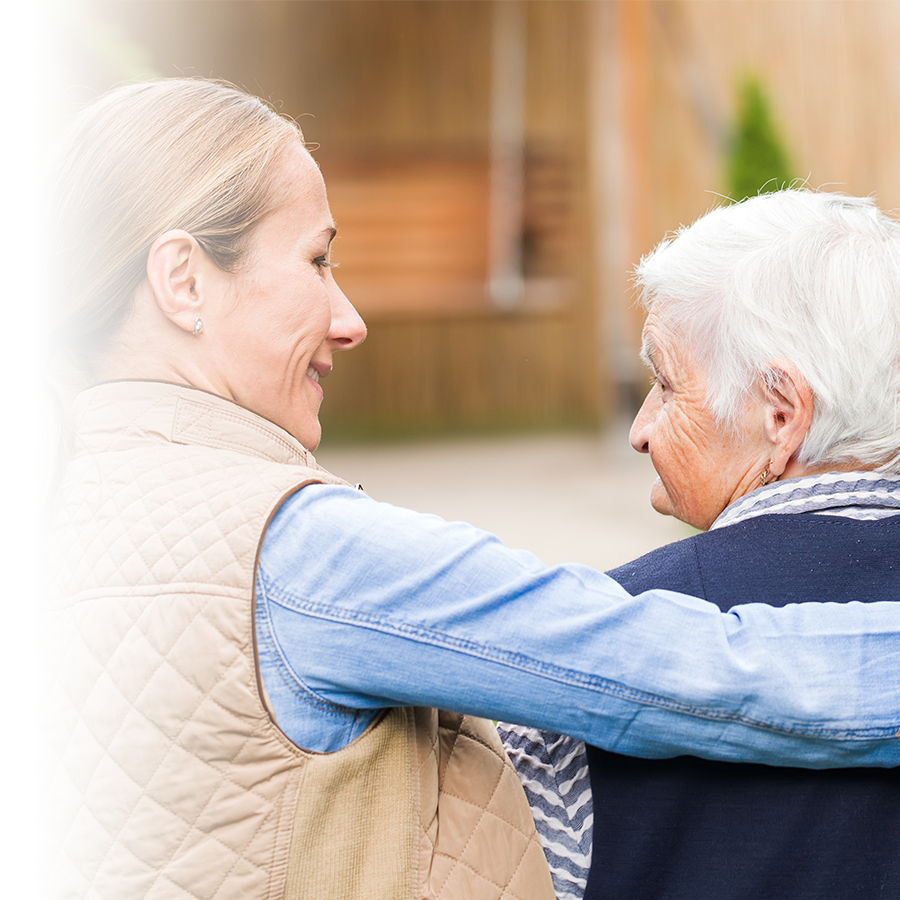In our families, there are elderly family members that we want to take care of. Ensuring the well-being of seniors involves being concerned with their daily safety.
Preventing falls
Did you know that falls represent 10% of emergency visits and 85% of hospitalizations for the elderly; and that 40% of individuals to whom it happens will suffer from a hip fracture following this fall?
Bones become brittle and fragile with age. Some individuals are more prone to this condition than others, several suffer from a silent disease called osteoporosis.
The consequences of a fall for an elderly person can be disastrous, long hospitalizations, infections, permanent injuries, invalidity, etc. Several individuals will die from the effects of a fracture.
This is why it is important to make the prevention of falls a priority. Here are a few useful tips to reduce the risk of falling at home:
- Make the two areas that are the most at risk in a home: the bathroom and the stairs, as safe as possible.
- In the bathroom, use accessories such as support bars that are securely mounted or a bench for the bathtub.
- Make sure that the stairs are equipped with a railing which is accessible and securely fastened for support.
- Avoid placing objects and furniture that needlessly clutter and block walkways when moving from one place to another.
- Remove carpets, unless they have a specific purpose (i.e. a non-slip bath mat).
- Check the lighting in all rooms to ensure that it is adequate.
- Use mobility aids when needed (such as a walker or cane). Make sure it is well adapted and adjusted.
- Install a bench near the front door to facilitate putting on shoes and boots.
- Ask a pharmacist about the products and accessories that are available at the pharmacy to make your home safe and to make daily life easier for seniors.
Safe use of medications
When they are used properly and as prescribed, medications help to maintain a person’s health and quality of life. Seniors often have to take several medications at a time. However, if they are not taken properly, they can constitute a threat by causing certain side effects and increasing the risk of falls and injuries.
Pharmacists make an effort to ensure that medications are taken safely and optimally. Therefore, it is important to do the same at home.
Here are a few tips on the matter:
- Clean out the medicine cabinet regularly.
- Never take medication or a natural health product without having talked to your pharmacist or doctor first.
- Never take more medication than what is recommended or prescribed. Make sure you understand the recommendations of the dosage requirements.
- Ask about the possible side effects and the risk of drug interactions.
- Always keep a thorough updated list of the medications you take regularly and those you take as needed.
- Never take medication that is prescribed to someone else.
- Bring all expired or unneeded medication back to the pharmacy for safe disposal.
- Consider using a daily pill dispenser to avoid forgetting medication or medication errors.
Your pharmacist is a medication specialist. Consult him/her as often as needed.
Emergency situations
When seniors are living alone, especially if they are losing their autonomy, it is important that they be prepared for emergencies, such as a fall or a malaise.
It can be reassuring that seniors have access to an emergency call service. Most warning systems currently offered on the market are equipped with cordless emergency call buttons that allow individuals to contact emergency services at all times if there is a problem.
Seniors who are ill or who live alone are the most likely to benefit from this service.
Here are a few additional tips in dealing with an emergency:
- Make sure you have all of the emergency numbers in sight in strategic places (i.e. on the refrigerator or near the different telephones in your home). Dialing 9-1-1 is probably the best strategy during an emergency.
- Don’t wait before calling emergency services. Many people hesitate or wait before asking for help and this can have serious consequences.
- Make a list of contacts to call if a problem arises. Choose people who live nearby and who are available.
- Develop an action plan in case of an emergency and review the steps of the plan periodically.
Speak to your pharmacist for additional information about the health and safety of the elderly.

